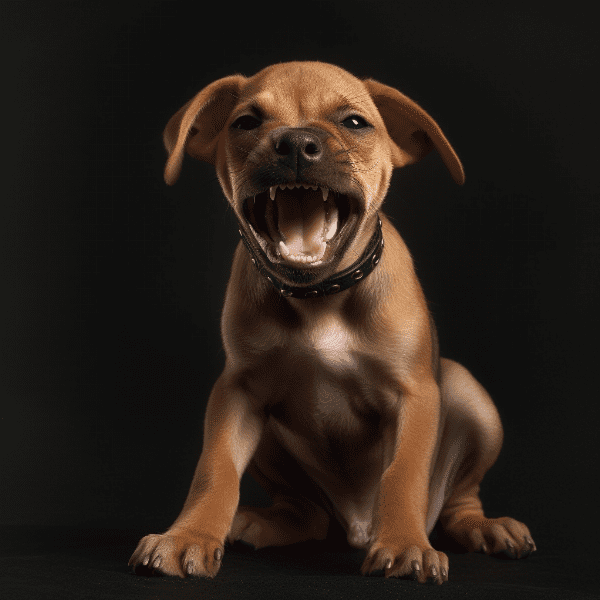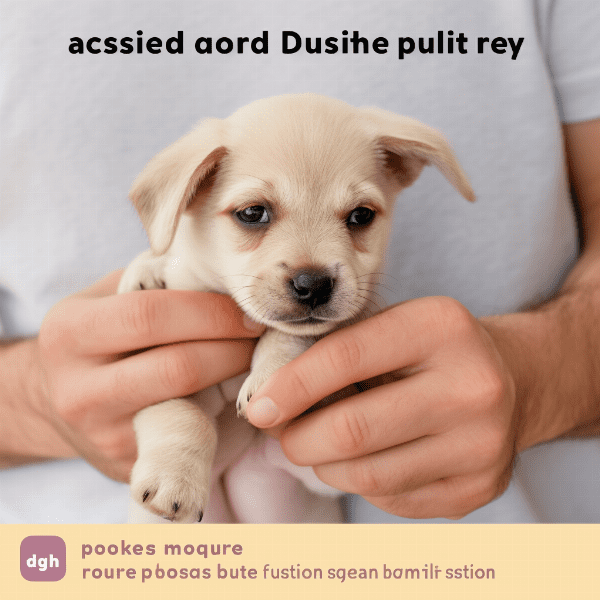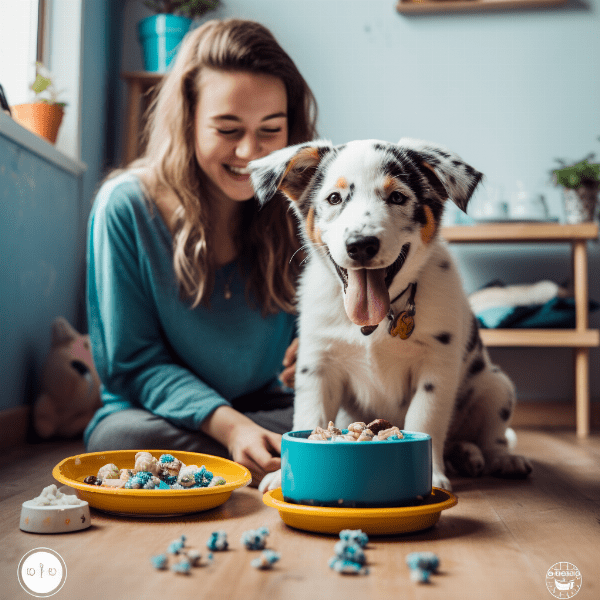Table of Contents
- Introduction to Puppy Aggression
- Understanding Normal Puppy Behavior
- Signs of Aggression in Puppies
- Common Triggers for Puppy Aggression
- Managing Aggression in Puppies
- Training Techniques for Aggressive Puppies
- Seeking Professional Help for Puppy Aggression
- Preventing Puppy Aggression: Tips for Owners
- Conclusion: Early Recognition is Key
- Additional Resources for Dealing with Puppy Aggression
Introduction to Puppy Aggression
Welcoming a new puppy into your home is an exciting experience. They are cute, cuddly, and full of energy, but sometimes they can show signs of aggression. It’s important to recognize these signs early on and address them before they escalate into more serious problems. In this section, we will discuss the basics of Puppy aggression and what you need to know to help your puppy become a happy, healthy member of your family.
What is Puppy Aggression?
Puppy aggression refers to any behavior that is meant to harm another living creature. This can include biting, growling, snarling, and snapping. It’s important to remember that not all aggressive behaviors are the same. Some puppies may show aggression when they are scared, while others may do so when they are trying to establish dominance. Understanding why your puppy is acting aggressively is key to addressing the issue.
Why Do Puppies Become Aggressive?
There are several reasons why puppies may become aggressive. Some of the most common triggers include fear, lack of socialization, territorial behavior, and genetics. Puppies that have not been properly socialized may be fearful or anxious in new situations, which can lead to aggression. Additionally, some breeds may be more predisposed to aggressive behavior due to their genetics.
The Importance of Addressing Aggressive Behaviors Early On
It’s important to address aggressive behaviors in puppies as soon as they arise. If left unchecked, these behaviors can escalate and become more serious over time. Puppies that are allowed to continue aggressive behaviors may become dangerous to other animals or even people. Early intervention is key to preventing these problems from occurring.
Conclusion
In conclusion, puppy aggression is a common issue that can arise in any dog, regardless of breed or background. Understanding the causes and recognizing the signs of aggression early on is key to addressing the issue before it becomes more serious. In the next section, we will discuss normal puppy behavior and how it differs from aggressive behavior.
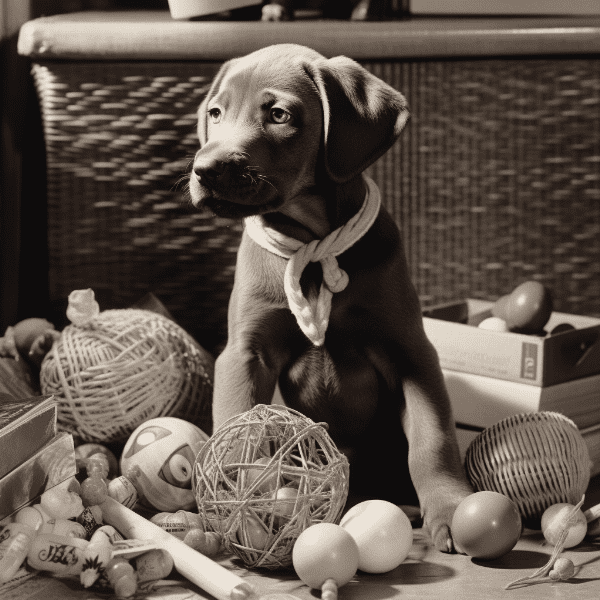
Understanding Normal Puppy Behavior
Before we can talk about puppy aggression, it’s important to understand what is considered normal behavior for puppies. Puppies are naturally curious, playful, and energetic. They explore the world around them with their noses and mouths, which means they may chew on anything within reach. In this section, we will discuss some of the common behaviors exhibited by puppies and how to differentiate them from signs of aggression.
Mouthing and Chewing
One of the most common behaviors exhibited by puppies is mouthing and chewing. Puppies use their mouths to explore the world around them and to play with other dogs and humans. It’s important to note that mouthing and chewing are not necessarily signs of aggression. However, if your puppy is biting hard or refusing to let go, this could be a sign of a more serious issue.
Playfulness
Puppies are known for their playful nature. They love to run, jump, and play with toys. Playtime is an important part of a puppy’s development, as it helps them learn important social skills and burn off excess energy. Playful behaviors should be encouraged, as long as they do not become too rough or aggressive.
Submissive Behaviors
Puppies will often exhibit submissive behaviors when interacting with other dogs or humans. These behaviors can include rolling over onto their backs, tucking their tails between their legs, and avoiding direct eye contact. Submissive behaviors are a natural part of a puppy’s socialization process, and they should be encouraged.
Conclusion
In conclusion, understanding normal puppy behavior is an important step in recognizing signs of aggression. Mouthing and chewing, playfulness, and submissive behaviors are all normal behaviors exhibited by puppies. However, it’s important to differentiate between these behaviors and signs of aggression, which we will discuss in the next section.

Signs of Aggression in Puppies
While puppy behavior can be playful and cute, it’s important to recognize when your puppy is exhibiting signs of aggression. Aggressive behaviors can escalate quickly and become dangerous if left unchecked. In this section, we will discuss the common Signs of aggression in puppies and how to differentiate them from normal puppy behavior.
Growling
One of the most common signs of aggression in puppies is growling. Growling can be a warning sign that your puppy is feeling threatened or uncomfortable. It’s important to take growling seriously, as it can escalate into biting if not addressed. If your puppy growls at you or someone else, it’s important to address the behavior immediately.
Biting
Biting is another common sign of aggression in puppies. Puppies may bite during playtime, but it’s important to differentiate between playful biting and aggressive biting. Aggressive biting may be harder and more persistent than playful biting. If your puppy is biting aggressively, it’s important to address the behavior immediately.
Snarling and Showing Teeth
Snarling and showing teeth are other signs of aggression in puppies. These behaviors are usually a warning sign that your puppy is feeling threatened or uncomfortable. If your puppy is snarling or showing their teeth, it’s important to take a step back and assess the situation.
Stiff Body Language
Puppies that are feeling aggressive may exhibit stiff body language. This can include a rigid stance, raised fur, and a fixed stare. Stiff body language can be a warning sign that your puppy is feeling threatened or uncomfortable.
Conclusion
In conclusion, recognizing the signs of aggression in puppies is an important step in addressing the issue. Growling, biting, snarling, and stiff body language are all common signs of aggression in puppies. It’s important to differentiate between normal puppy behavior and signs of aggression to address the issue before it becomes more serious. In the next section, we will discuss some of the common triggers for puppy aggression.
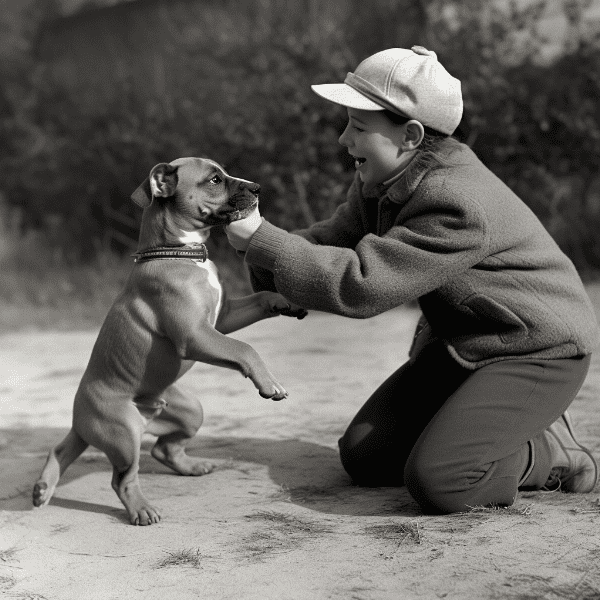
Common Triggers for Puppy Aggression
Understanding what triggers your puppy’s aggressive behaviors is key to addressing the issue. In this section, we will discuss some of the common triggers for puppy aggression and how to prevent them.
Fear
Fear is one of the most common triggers for puppy aggression. Puppies that are scared or anxious may lash out aggressively to protect themselves. It’s important to socialize your puppy from a young age to prevent fear-based aggression. Socialization can help your puppy feel more comfortable in new situations and around new people and animals.
Lack of Socialization
A lack of socialization can also be a trigger for puppy aggression. Puppies that have not been properly socialized may be fearful or anxious in new situations, which can lead to aggressive behaviors. It’s important to expose your puppy to a variety of people, animals, and situations from a young age to prevent socialization-related aggression.
Territorial Behavior
Territorial behavior is another common trigger for puppy aggression. Puppies may become protective of their food, toys, or sleeping areas, and may become aggressive if they feel these areas are being threatened. It’s important to establish boundaries and rules for your puppy early on to prevent territorial aggression.
Genetics
Genetics can also play a role in puppy aggression. Some breeds may be more predisposed to aggressive behavior due to their genetics. It’s important to research your puppy’s breed and be aware of any potential aggressive tendencies.
Conclusion
In conclusion, recognizing the common triggers for puppy aggression is an important step in preventing and addressing the issue. Fear, lack of socialization, territorial behavior, and genetics are all common triggers for puppy aggression. Socialization, establishing boundaries, and understanding your puppy’s breed can all help prevent aggressive behaviors from arising. In the next section, we will discuss how to manage aggression in puppies.
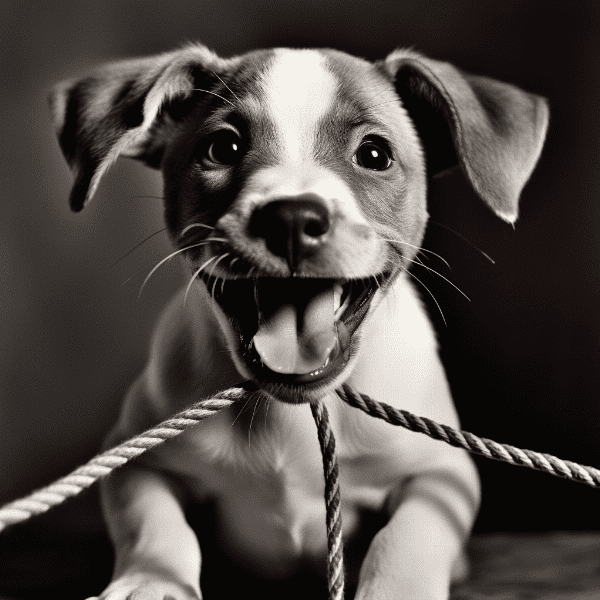
Managing Aggression in Puppies
If your puppy is exhibiting signs of aggression, it’s important to address the issue immediately. In this section, we will discuss some strategies for managing aggression in puppies.
Stay Calm
The first step in managing aggression in puppies is to stay calm. If you become angry or aggressive in response to your puppy’s behavior, this can escalate the situation. It’s important to remain calm and assertive to prevent the situation from escalating.
Identify Triggers
Identifying what triggers your puppy’s aggression is key to managing the issue. If your puppy is aggressive when their food or toys are threatened, it’s important to establish boundaries and rules around these items. If your puppy is aggressive in new situations, socialization may be the key to addressing the issue.
Remove Triggers
Once you have identified what triggers your puppy’s aggression, it’s important to remove these triggers as much as possible. This may mean establishing boundaries around food and toys, or avoiding situations that trigger fear or anxiety.
Training and Positive Reinforcement
Training and positive reinforcement can also be effective strategies for managing aggression in puppies. Using positive reinforcement techniques, such as treats and praise, can encourage your puppy to exhibit positive behaviors. Working with a professional trainer can also be effective in managing aggression in puppies.
Conclusion
In conclusion, managing aggression in puppies requires a combination of strategies, including staying calm, identifying triggers, removing triggers, training, and seeking professional help when necessary. With patience and persistence, aggressive behaviors can be managed effectively, ensuring a happy and healthy relationship between you and your puppy. In the next section, we will discuss some training techniques for aggressive puppies.
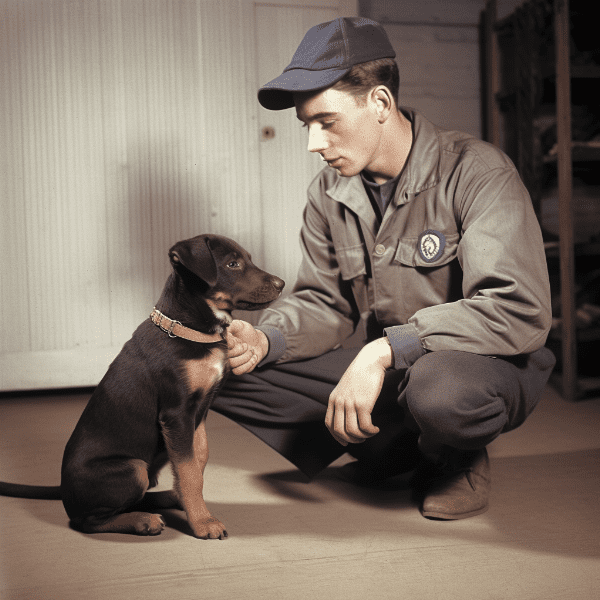
Training Techniques for Aggressive Puppies
Training is an important part of managing aggressive behaviors in puppies. In this section, we will discuss some training techniques that can be effective in addressing aggression in puppies.
Consistency
Consistency is key when it comes to training aggressive puppies. It’s important to establish clear boundaries and rules for your puppy and to enforce them consistently. Inconsistency can lead to confusion and may exacerbate aggressive behaviors.
Redirecting Behaviors
Redirecting your puppy’s aggressive behaviors can also be effective in addressing the issue. For example, if your puppy is biting or chewing on something they shouldn’t, redirecting their attention to a toy or treat can help prevent the behavior from escalating.
Conclusion
In conclusion, training techniques such as positive reinforcement, consistency, socialization, and redirecting behaviors can be effective in addressing aggression in puppies. With patience and persistence, these techniques can help your puppy learn positive behaviors and prevent aggressive behaviors from escalating. In the next section, we will discuss when it’s necessary to seek professional help for puppy aggression.
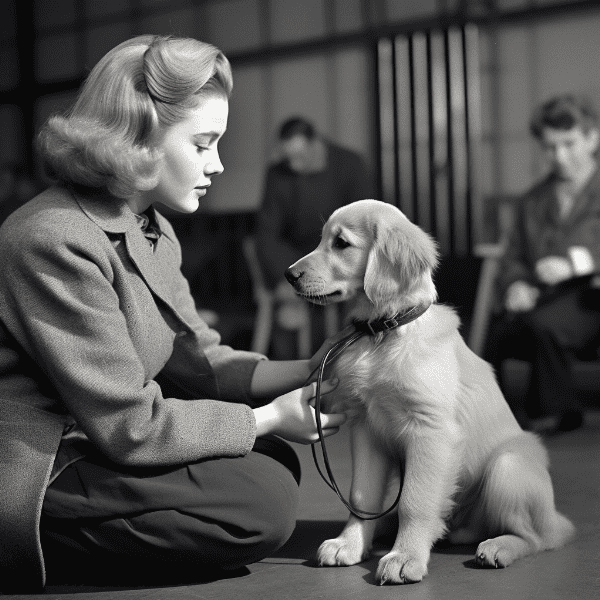
Seeking Professional Help for Puppy Aggression
If your puppy’s aggressive behaviors are severe or persistent, it may be necessary to seek professional help. In this section, we will discuss when it’s necessary to seek professional help for puppy aggression.
Persistent Aggressive Behaviors
If your puppy’s aggressive behaviors are persistent and do not respond to training and management techniques, it may be necessary to seek professional help. A veterinary behaviorist or professional dog trainer can provide specialized help and support to address the issue.
Safety Concerns
If your puppy’s aggressive behaviors are putting other animals or people at risk, it’s important to seek professional help immediately. Aggressive behaviors can escalate quickly and become dangerous if left unchecked.
Underlying Medical Issues
In some cases, aggressive behaviors in puppies may be caused by underlying medical issues. If your puppy’s aggressive behaviors seem out of character or have come on suddenly, it’s important to take them to the vet to rule out any medical issues.
Conclusion
In conclusion, seeking professional help for puppy aggression may be necessary in cases where aggressive behaviors are persistent, putting others at risk, or may have underlying medical issues. A veterinary behaviorist or professional dog trainer can provide specialized help and support to address the issue. Remember, early intervention is key to preventing aggressive behaviors from escalating. In the next section, we will discuss some tips for preventing puppy aggression.

Preventing Puppy Aggression: Tips for Owners
Preventing puppy aggression is an important part of being a responsible pet owner. In this section, we will discuss some tips for preventing puppy aggression.
Socialization is key to preventing puppy aggression. Exposing your puppy to a variety of people, animals, and situations from a young age can help them feel more comfortable and confident, which can prevent aggressive behaviors from arising.
Positive Reinforcement
Using positive reinforcement techniques, such as treats and praise, can encourage your puppy to exhibit positive behaviors. Reinforcing good behavior can help prevent aggressive behaviors from arising.
Establish Clear Boundaries
Establishing clear boundaries and rules for your puppy can prevent territorial aggression. For example, establishing boundaries around food and toys can prevent your puppy from becoming aggressive when these items are threatened.
Be Aware of Your Puppy’s Triggers
Being aware of what triggers your puppy’s aggressive behaviors can help prevent them from arising. If your puppy becomes aggressive in certain situations, it’s important to avoid or manage these situations to prevent aggression.
Seek Professional Help Early On
If you notice any signs of aggression in your puppy, it’s important to address the issue early on. Seeking professional help from a veterinary behaviorist or professional dog trainer can prevent the issue from escalating.
Conclusion
In conclusion, preventing puppy aggression is an important part of being a responsible pet owner. Socialization, positive reinforcement, establishing clear boundaries, being aware of your puppy’s triggers, and seeking professional help early on can all help prevent aggressive behaviors from arising. Remember, early intervention is key to preventing aggressive behaviors from escalating.
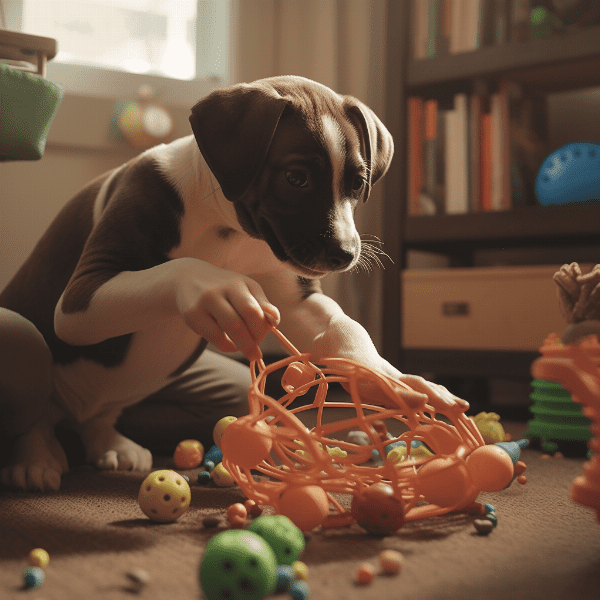
Conclusion: Early Recognition is Key
In conclusion, recognizing and addressing puppy aggression early on is crucial for ensuring a safe and happy relationship between you and your puppy. Understanding normal puppy behavior, identifying signs of aggression, and recognizing common triggers are all important steps in preventing and managing aggressive behaviors.
Using positive reinforcement techniques, establishing clear boundaries, and seeking professional help when necessary can all be effective strategies for managing aggressive behaviors in puppies. Remember, early intervention is key to preventing aggressive behaviors from escalating.
As a responsible pet owner, it’s important to prioritize your puppy’s training and socialization to prevent aggressive behaviors from arising. By doing so, you can ensure a happy and healthy relationship between you and your furry friend.
We hope this guide has provided you with valuable information on recognizing and managing puppy aggression. Remember, if you are concerned about your puppy’s behavior, don’t hesitate to seek professional help.
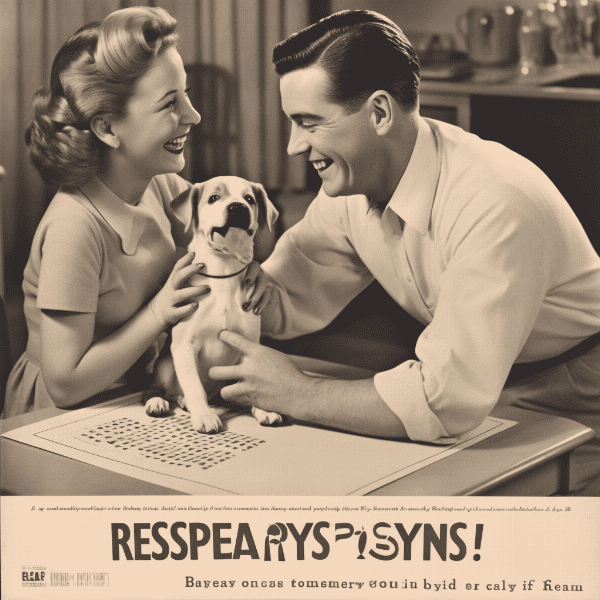
Additional Resources for Dealing with Puppy Aggression
Dealing with puppy aggression can be challenging, but there are many resources available to help you address the issue. In this section, we will discuss some additional resources for dealing with puppy aggression.
Professional Dog Trainers
Professional dog trainers can provide specialized help and support in managing and preventing aggressive behaviors in puppies. They can provide personalized training plans and strategies tailored to your puppy’s specific needs.
Veterinary Behaviorists
Veterinary behaviorists are experts in animal behavior and can provide specialized help and support in managing aggressive behaviors in puppies. They can work with you to develop a treatment plan and provide ongoing support and guidance.
Books and Online Resources
There are many books and online resources available on managing puppy aggression. These resources can provide valuable information and guidance on recognizing and addressing aggressive behaviors in puppies.
Puppy Training Classes
Puppy training classes can provide a structured environment for socializing your puppy and teaching them positive behaviors. They can also provide opportunities for professional guidance and support in managing aggressive behaviors.
Conclusion
In conclusion, there are many resources available to help you deal with puppy aggression. Professional dog trainers, veterinary behaviorists, books and online resources, and puppy training classes can all provide valuable guidance and support in managing and preventing aggressive behaviors in puppies. Remember, early intervention is key to preventing aggressive behaviors from escalating.


